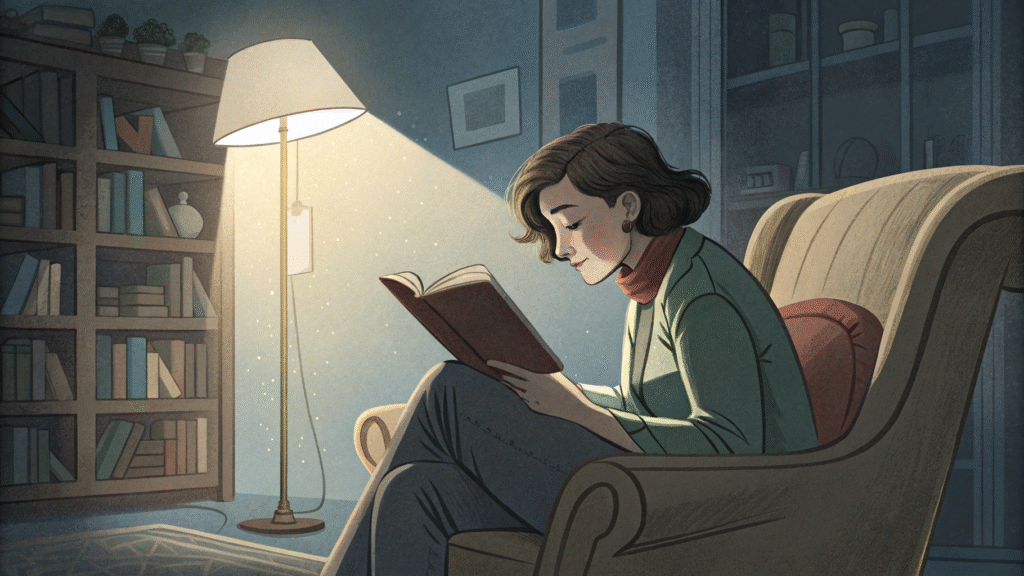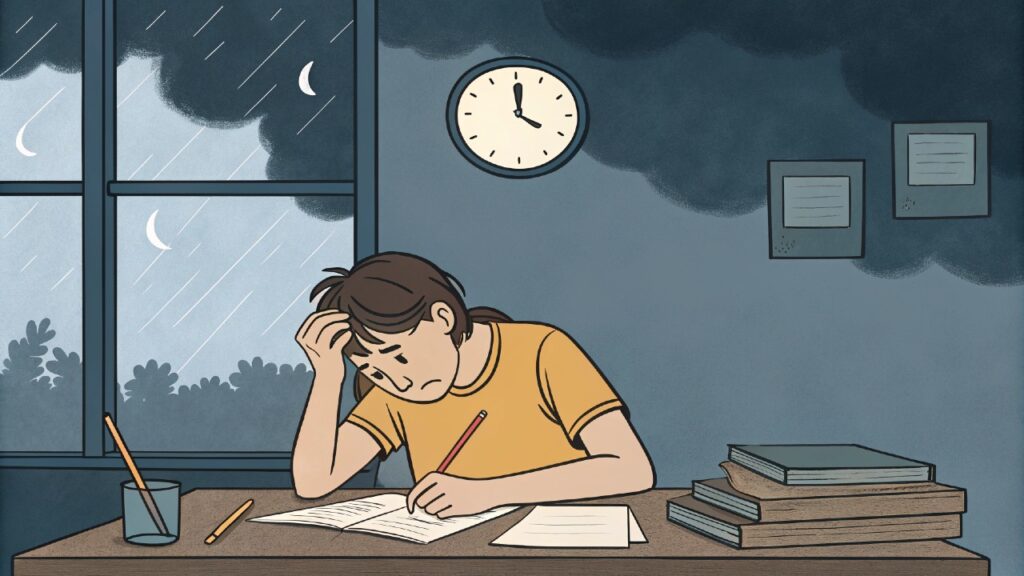Now Reading: How to avoid the comparison trap online: Your heart deserves better than this digital prison
-
01
How to avoid the comparison trap online: Your heart deserves better than this digital prison

How to avoid the comparison trap online: Your heart deserves better than this digital prison
She stared at her phone screen at 2:47 AM, tears silently streaming down her face. Another perfect vacation photo. Another engagement announcement. Another success story that made her own life feel like a failure. Maya had been scrolling for three hours, each swipe driving the knife of inadequacy deeper into her heart.
“Why can’t my life be like theirs?” she whispered into the darkness, her voice breaking on the words she’d thought a thousand times before.
If you’ve ever felt that familiar ache in your chest while scrolling through social media that hollow, consuming feeling that everyone else is living a better life than you you’re not alone. The comparison trap has ensnared millions of hearts, turning what should be platforms for connection into instruments of self-torture.
But here’s what I want you to know before we dive deeper: Your worth isn’t measured by likes, your value isn’t determined by others’ highlight reels, and your beautiful, messy, real life is enough. More than enough.
This isn’t just another article about social media boundaries. This is a love letter to everyone who has ever felt less than, a roadmap out of the digital prison of comparison, and a reminder that your heart deserves so much better than this endless cycle of pain.
Chapter 1: The science of why comparison hurts so much
The biological reality of digital pain
When Maya compares herself to others online, something devastating happens in her brain. Research shows that the same neural pathways that light up during physical pain also activate during social rejection and comparison. The heartbreak you feel when scrolling through others’ success stories isn’t metaphorical it’s literal, measurable pain firing through your nervous system.
Dr. Nancy DeAngelis from Jefferson Health explains that “social media platforms drive surges of dopamine to the brain to keep consumers coming back over and over again. The shares, likes, and comments on these platforms trigger the brain’s reward center, resulting in a high similar to the one people feel when gambling or using drugs”. But here’s the cruel twist: when we don’t receive that validation, when we see others getting what we crave, our brains experience withdrawal and that withdrawal feels like grief.
The upward spiral of destruction
Social comparison isn’t random. It follows predictable patterns that researchers have mapped with heartbreaking precision. When we engage in “upward social comparison” comparing ourselves to those we perceive as better off multiple studies show catastrophic effects on mental health:
. Decreased self-esteem that can last for days after just minutes of scrolling
. Increased symptoms of depression and anxiety, particularly among young women aged 12-24
. Heightened feelings of envy, regret, and hopelessness
. Distorted self-perception that makes our real lives feel inadequate
But the most devastating finding? The people who are already struggling with mental health challenges are most vulnerable to comparison’s cruelest effects. When you’re already hurting, social media doesn’t just add to your pain it amplifies it exponentially.
The adolescent heart: Most vulnerable of all
Seventeen-year-old Sarah sits in her bedroom, surrounded by college acceptance letters that should make her proud. Instead, she’s sobbing as she scrolls through Instagram, watching classmates post about getting into Ivy League schools. Her own acceptance to a respected state university suddenly feels like failure.
“I worked so hard,” she tells her mom through tears. “But looking at everyone else’s posts, it feels like I’m not good enough. Like I’ll never be good enough.”
Research reveals why Sarah’s pain runs so deep. Adolescents spend an average of 7 hours and 38 minutes daily consuming media more than 53 hours per week. During this critical period of identity formation, when the brain is still developing, teenagers are essentially marinating in comparison culture during their most vulnerable years.
The statistics are staggering and heartbreaking:
. 78% of teens have cell phones, with social media access driving constant comparison opportunities
. Girls aged 10-14 show the steepest decline in self-esteem directly correlated with social media use
. Heavy social media users (5+ hours daily) report lower sense of self, depression, and even suicidal thoughts
The perfect storm: When vulnerability meets comparison
Dr. Emma Seppaelae from Stanford’s Center for Compassion and Altruism explains the devastating cycle: “When we use social media just to passively view others’ posts, our happiness decreases”. But for people already struggling with mental health challenges, this passive consumption becomes a form of self-harm.
The research is clear and crushing: people with existing depression, anxiety, or low self-esteem are most likely to engage in harmful social comparison, creating a vicious cycle where the people who most need healing are most drawn to the very behaviors that deepen their wounds.
Chapter 2: The real stories behind the screens
Emma’s story: When perfect lives hide perfect pain
Emma’s Instagram looked like a dream. Exotic vacations, a loving boyfriend, career success 1.2 million followers hung on every perfectly curated post. But behind the camera, Emma was drowning.
“I spent hours setting up each shot, editing every photo until it looked flawless,” Emma shares, her voice barely above a whisper. “But the more perfect my online life became, the more inadequate my real life felt. I was creating the very content that made other people feel bad about themselves, and I hated myself for it.”
The breaking point came during what looked like a perfect beach vacation. “I spent three days getting the ‘perfect’ sunset photo instead of actually enjoying the sunset. When I finally posted it and saw other influencers with better engagement, I had a complete breakdown. I realized I wasn’t living my life I was performing it.”
Emma’s story reveals a heartbreaking truth: even those who seem to have perfect online lives are often trapped in the same comparison cycle, desperately trying to maintain an image that’s slowly destroying their souls.
Michael’s descent: From confidence to crisis
Michael was a confident college athlete until social media showed him a world of competitors he’d never imagined. “I thought I was pretty good until I started following other athletes online,” he recalls, his hands shaking as he remembers. “Suddenly, I wasn’t just competing with my teammates I was comparing myself to the best athletes in the world, 24/7.”
The comparison consumed him. “I’d spend hours watching training videos, analyzing other guys’ physiques, obsessing over their stats. My own achievements started feeling worthless. I went from loving my sport to hating myself.”
The research backs up Michael’s experience: social comparison in sports and fitness contexts leads to particularly devastating mental health outcomes, with young men showing increased rates of body dysmorphia and exercise addiction when exposed to idealized fitness content.
The invisible victims: Parents in the comparison trap
Thirty-four-year-old Lisa thought she’d outgrown comparison until she became a mother. “Suddenly, I wasn’t just comparing my life to others I was comparing my parenting, my children, even my family dynamics to what I saw online.”
The “mommy blogger” culture became her particular torture. “Every post about organic meals, educational activities, and perfect family moments made me feel like I was failing my kids. I started documenting everything we did, trying to prove I was a good mom, but it was never enough.”
The breaking point came during her daughter’s birthday party. “I spent the entire party behind my phone, trying to get Instagram-worthy shots instead of actually being present with my child. When I realized what I was doing, I just started crying. My daughter asked why Mommy was sad at her party, and I didn’t know how to explain that I’d chosen social media validation over her happiness.”
Research shows that parental social media comparison has devastating effects not just on parents’ mental health, but on family relationships and children’s emotional development. When parents are trapped in comparison cycles, the entire family suffers.
Chapter 3: The hidden psychology of why we can’t stop
The validation addiction that’s rewiring our brains
Dr. Steve Rose, addiction counselor, explains the neurological trap: “Likes on social media are addictive because they affect your brain, similar to taking chemical substances. Likes symbolize a gain in reputation, causing you to constantly compare yourself to your peers”.
But here’s what makes this addiction particularly cruel: the very behavior that provides temporary relief (seeking validation online) also creates the conditions for deeper pain. Each like, comment, or share triggers a dopamine hit that feels like love, acceptance, and worth. But when that validation doesn’t come, or when we see others receiving more, our brains experience it as rejection and abandonment.
Research reveals the devastating cycle:
1. Seeking phase: We post content hoping for validation
2. Dopamine hit: Positive responses trigger pleasure chemicals
3. Tolerance building: We need more validation to feel the same high
4. Comparison trigger: Seeing others’ success triggers pain and inadequacy
5. Compulsive return: We return to social media seeking relief from the pain it created
The illusion of connection in a lonely world
Twenty-two-year-old David captures the cruel paradox: “I have 2,000 Facebook friends and 150,000 TikTok followers, but I’ve never felt more alone in my life. I spend hours every day interacting with people online, but none of it feels real. When I actually need someone to talk to, to really talk to, there’s nobody there.”
Research confirms David’s experience: heavy social media use is correlated with increased loneliness, not decreased isolation. The comparison trap doesn’t just steal our self-worth it robs us of genuine human connection by replacing real relationships with performative interactions.
The gender divide: Why girls and women suffer more
The research reveals a heartbreaking gender disparity in social media comparison effects. Girls and young women consistently show:
. Greater vulnerability to appearance-based comparison
. Higher rates of depression and anxiety linked to social media use
. More severe body image distortion from exposure to idealized images
. Earlier onset of comparison behaviors, often beginning as young as age 10
Dr. Catherine Young explains: “Adolescents are particularly vulnerable to the negative effects of social media-induced comparison. As they navigate the tumultuous waters of adolescence, they are already grappling with issues of self-esteem, identity formation, and social acceptance. When bombarded with carefully curated images and posts that showcase the best moments of others’ lives, adolescents may feel inadequate or envious, leading to feelings of insecurity and self-doubt”.
But the pain isn’t limited to teenagers. Adult women report that social media comparison affects their relationships, career satisfaction, parenting confidence, and overall life satisfaction at unprecedented rates.
Chapter 4: The moment everything changes – Recognition and awakening
Sarah’s breaking point: When the mirror finally cracked
Sarah’s awakening came during what should have been one of the happiest moments of her life. She’d just received news that she’d been accepted into graduate school a dream she’d worked toward for years. But instead of celebrating, she found herself immediately opening Instagram to see if anyone else had shared similar news.
“I saw a classmate post about getting into Harvard, and suddenly my acceptance felt worthless,” Sarah remembers, tears still fresh in her eyes years later. “I realized I couldn’t even experience my own joy without comparing it to someone else’s success. That’s when I knew I was trapped.”
The moment of recognition was devastating but necessary. “I looked at myself in my phone’s black screen and saw a stranger someone who had given away her ability to feel proud, happy, or content to an algorithm designed to make me feel inadequate. I was 24 years old and I couldn’t remember the last time I’d felt genuinely happy about anything without immediately wondering if it was good enough compared to others.”
The invisible prison: When comparison becomes identity
For many trapped in the comparison cycle, the most shocking realization is how completely it has taken over their inner landscape. Twenty-six-year-old Marcus describes his awakening: “I realized I hadn’t had an original thought about myself in years. Every opinion I had about my appearance, my career, my relationships, my life it was all based on how I measured up to someone else.”
Research confirms this devastating identity erosion. When we engage in chronic social comparison, we literally lose touch with our authentic selves. Our self-concept becomes entirely external, dependent on how we stack up against others rather than rooted in our own values, experiences, and inherent worth.
“I couldn’t tell you what I actually liked or wanted because everything was filtered through ‘Is this as good as what X person has?'” Marcus continues. “I was living as a comparison, not as a person.”
The physical manifestation of digital pain
The comparison trap doesn’t just hurt emotionally it creates real, measurable physical symptoms that research is now documenting:
. Chronic sleep disruption from late-night scrolling and comparison-induced anxiety
. Appetite changes and eating disorders triggered by body image comparison
. Headaches and tension from constant emotional stress
. Fatigue and low energy from the exhausting mental gymnastics of comparison
. Panic attacks and anxiety symptoms triggered by social media use
Dr. Lisa shares her clinical observations: “I see patients whose bodies are literally breaking down from the stress of social media comparison. Young people coming in with symptoms that look like grief because that’s exactly what it is. They’re grieving the loss of their own self-worth.”
Chapter 5: The path out – Reclaiming your heart from the algorithm
Step 1: The courage to see the truth
The first step out of the comparison trap requires tremendous courage: honestly acknowledging the full extent of how social media comparison has affected your life. This isn’t about blame or shame it’s about loving yourself enough to see clearly so you can heal completely.
Maria’s truth-telling moment came through journaling: “I started writing down exactly how I felt before and after using social media. The patterns were undeniable and heartbreaking. Before: curious, neutral, sometimes happy. After: inadequate, envious, depressed, angry at myself. Every single time.”
Your truth-telling exercise:
For one week, track your emotional state before and after social media use. Use simple words: happy, sad, anxious, peaceful, inspired, defeated. Don’t judge the emotions just notice them. The pattern will become clear, and clarity is the beginning of freedom.
Step 2: Understanding your unique vulnerability points
Research shows that we don’t compare ourselves to everyone equally. We’re most vulnerable to comparison with people who seem similar to us but slightly “better off” in areas we care about deeply.
Identifying your comparison triggers:
. Who do you most often compare yourself to online? (Age, profession, lifestyle, appearance)
. What specific aspects trigger the strongest emotional reactions? (Career success, relationships, appearance, lifestyle, parenting, achievements)
. When are you most vulnerable to comparison? (Time of day, emotional state, life circumstances)
. Where does the comparison hurt most? (Which platforms, which types of content)
Twenty-eight-year-old Jennifer discovered her pattern: “I realized I only compared myself to other marketing professionals my age who seemed to have more exciting jobs. I didn’t care about influencers or celebrities but seeing a peer land a dream job would destroy me for days.”
Step 3: The revolutionary act of curating for your soul
Most people think they have to quit social media entirely to escape comparison. But research suggests a more nuanced approach: strategic curation that prioritizes your emotional well-being over algorithm-driven engagement.
The healing-centered curation process:
Unfollow without guilt: Start unfollowing accounts that consistently trigger comparison, even if they belong to friends or family. This isn’t about not caring about these people it’s about protecting your mental health so you can be present for real relationships.
Follow for growth, not comparison: Seek accounts that inspire action rather than envy. Look for:
. People sharing authentic struggles and growth
. Educational content in areas you want to develop
. Diverse voices that expand your perspective
. Mental health advocates sharing tools and hope
Create inspiration lists: Many platforms allow you to create private lists or groups of accounts. Create lists like “Daily Inspiration,” “Learning,” and “Joy” filled with accounts that genuinely uplift you.
Step 4: The practice of internal validation
The most powerful antidote to external comparison is internal validation learning to find worth, pride, and satisfaction from within rather than from others’ responses or achievements.
Building your internal validation practice:
Morning intention setting: Before touching your phone, spend 5 minutes identifying three things you’re genuinely proud of about yourself that have nothing to do with others’ opinions or achievements.
Evening gratitude: Before bed, write down three moments from your day when you felt authentic joy, pride, or contentment that weren’t dependent on external validation.
Comparison interruption: When you catch yourself comparing, pause and ask: “What am I really looking for right now?” Often, we’re seeking validation, connection, or inspiration. Identify the real need and find a healthier way to meet it.
Step 5: Reclaiming your offline life
Research consistently shows that the best protection against social media comparison is a rich, fulfilling offline life. When your real world is full of meaning, connection, and joy, the online world loses its power to define your worth.
Building offline anchors:
Creative expression: Engage in creative activities that bring you joy without sharing them online. Paint, write, cook, garden, build create for the pure pleasure of creating.
In-person connection: Invest in face-to-face relationships. Research shows that real-world social connections provide the validation and belonging that social media promises but can’t deliver.
Physical movement: Exercise, dance, walk in nature activities that connect you to your body and the present moment rather than the digital comparison trap.
Service to others: Volunteering and helping others provides perspective and genuine purpose that makes social media drama seem trivial in comparison.
Step 6: Developing comparison immunity
The goal isn’t to never notice what others are doing it’s to develop emotional immunity to the comparison trap. This means building internal strength so that others’ success can inspire rather than devastate you.
The immunity-building process:
Celebrate others genuinely: Practice being genuinely happy for others’ success. This isn’t about forcing fake positivity it’s about recognizing that others’ good fortune doesn’t diminish your own worth or possibilities.
Reframe competition as inspiration: When you see someone achieving something you want, ask: “What can I learn from their journey?” rather than “Why don’t I have what they have?”
Focus on your unique path: Constantly remind yourself that you’re not in competition with anyone else. Your life is your own unique journey with its own timeline, challenges, and victories.
Chapter 6: The ripple effects – How healing yourself heals others
When you break free, you break chains for others
Lisa’s healing journey didn’t just transform her own life it created ripples that touched everyone around her. “When I stopped posting comparison-inducing content and started sharing real moments the messy kitchen, the parenting struggles, the imperfect but genuine joy something beautiful happened. Other moms started doing the same.”
The comment section of Lisa’s posts transformed from performative praise to real connection: “Thank you for keeping it real.” “I needed to see this today.” “Your honesty made me feel less alone.”
Research confirms this phenomenon: when we model authentic, non-comparison-based social media use, it gives others permission to do the same. Your healing becomes a gift to everyone in your digital community.
The children are watching
Perhaps nowhere is the ripple effect more crucial than with children and teenagers who are learning how to relate to social media by watching the adults in their lives.
Maria, now a mother of two teenage daughters, reflects: “I realized my daughters were watching how I used my phone, how I reacted to social media, whether I was present with them or constantly documenting our lives for online validation. When I changed my relationship with social media, I wasn’t just healing myself I was modeling emotional health for them.”
The statistics around teen mental health and social media are devastating, but research also shows that parental modeling of healthy digital habits can protect children from the worst effects. When you reclaim your worth from the comparison trap, you’re literally protecting the next generation.
Creating communities of authentic connection
As more people recognize and escape the comparison trap, we’re seeing the emergence of social media communities built on authenticity rather than performance. These spaces prioritize:
. Real stories over perfect images
. Vulnerability over invulnerability
. Support over competition
. Growth over perfection
. Connection over validation
Dr. James shared his experience joining a mental health support group on Facebook: “For the first time in years, I found a social media space where people were genuinely sharing their struggles and victories without the performative element. It reminded me what social media could be when it’s not driven by comparison and competition.”
Chapter 7: Practical tools for daily liberation
The 5-minute morning protection ritual
Before you touch your phone or check any social media, spend five minutes building your internal foundation:
1. Breathe deeply and connect with your body in the present moment
2. Set an intention for how you want to feel today, independent of others’ lives or opinions
3. Remember your values what matters most to you in life, beyond social media metrics
4. Visualize yourself navigating the day with confidence and self-compassion
5. Commit to self-care promise yourself one act of kindness today that has nothing to do with others’ approval
The comparison emergency kit
For those moments when you’re caught in the spiral and need immediate relief:
The STOP technique:
. Stop scrolling immediately
. Take three deep breaths
. Observe what you’re feeling without judgment
. Pause and choose your next action consciously
Reality check questions:
. Is what I’m seeing the whole story of this person’s life?
. How do I know this post is representing reality?
. What am I really looking for right now? (connection, inspiration, validation)
. How can I meet that need in a healthier way?
Immediate action steps:
. Put the phone in another room for 20 minutes
. Do something that makes you feel competent and valuable
. Connect with someone who knows and loves the real you
. Engage in physical movement to shift your energy
The weekly digital detox
Research shows that regular breaks from social media can significantly reduce comparison-driven anxiety and depression. Design a weekly detox that works for your life:
The Gentle approach: One evening per week completely offline, filled with activities that bring you joy and connection.
The intensive approach: 24-48 hours completely offline each week, using the time for deep self-care, creativity, and in-person relationships.
The micro-approach: Daily 2-hour periods offline, usually including meals and the hour before bed.
The key is consistency and intentionality. Mark these times on your calendar like important appointments because they are appointments with your mental health and authentic self.
Building your real-world support network
The comparison trap thrives in isolation. Building genuine, offline connections is one of the most powerful antidotes to digital comparison pain.
Finding your people:
. Join clubs or groups based on genuine interests, not networking or image
. Volunteer for causes you care about
. Take classes to learn new skills
. Join support groups for issues you’re navigating
. Reconnect with old friends who knew you before social media
Deepening existing relationships:
. Have phone conversations instead of just texting
. Plan in-person activities without phones
. Share real struggles, not just successes
. Ask deeper questions about people’s inner lives, not just their achievements
. Practice being present and fully engaged during time together
Chapter 8: The neuroscience of healing: Rewiring your brain for self-compassion
Understanding your brain on comparison
When we engage in social comparison, several neural networks activate simultaneously, creating a perfect storm of emotional pain:
. The reward system gets activated by others’ success, triggering craving and inadequacy
. The threat detection system interprets others’ achievements as threats to our own worth
. The default mode network gets stuck in rumination and negative self-talk
. The emotional regulation centers become overwhelmed and shut down
But here’s the hope that research offers: brains are neuroplastic, which means these patterns can be changed through intentional practice. You can literally rewire your brain to respond differently to social comparison triggers.
The self-compassion revolution
Dr. Kristin Neff’s research on self-compassion provides a powerful framework for healing from comparison trauma. Self-compassion has three components:
Self-kindness: Treating yourself with the same gentleness you’d show a beloved friend who was hurting.
Common humanity: Recognizing that struggle, imperfection, and difficult emotions are part of the shared human experience, not personal failures.
Mindful awareness: Observing your thoughts and feelings without being overwhelmed by them or pushing them away.
Research shows that people high in self-compassion are significantly less affected by social comparison and show greater resilience when exposed to others’ success.
Rewiring exercises for long-term healing
The loving-kindness practice for comparison recovery:
When you notice comparison thoughts arising, try this sequence:
1. “May I be happy and free from suffering”
2. “May I accept myself as I am in this moment”
3. “May I remember that my worth is not dependent on others’ achievements”
4. “May I find peace with my own unique journey”
5. “May the person I was comparing myself to also be happy and free from suffering”
This practice, backed by neuroscience research, literally changes brain structure over time, reducing comparison-triggered pain and increasing emotional resilience.
The progress, not perfection mantra:
Replace comparison thoughts with progress awareness:
. Instead of “They’re so much better than me,” try “I’m growing at my own pace”
. Instead of “I’ll never have what they have,” try “I’m building something meaningful in my own way”
. Instead of “I’m so behind in life,” try “I’m exactly where I need to be for my journey”
Creating new neural pathways
Every time you choose self-compassion over self-criticism, authenticity over performance, or gratitude over comparison, you’re literally creating new neural pathways in your brain. With consistent practice, these new pathways become stronger than the old comparison patterns.
The 90-day brain rewiring challenge:
Commit to 90 days of intentional comparison recovery practices:
. Daily self-compassion meditation (even 5 minutes)
. Weekly offline activities that bring you genuine joy
. Regular gratitude practice focused on your own life and growth
. Conscious social media curation for emotional well-being
. Professional support if needed
Research shows that 90 days of consistent practice can create measurable changes in brain structure and function, literally rewiring your relationship with comparison and self-worth.
Chapter 9: The deeper healing: Addressing root wounds
When comparison covers deeper pain
For many people, social media comparison is a symptom of deeper wounds that need healing. The comparison trap often masks:
. Childhood experiences of conditional love where affection was tied to achievement
. Trauma from being bullied, rejected, or criticized during formative years
. Family systems where love was competitive or scarce
. Cultural messages about worth being tied to success, appearance, or status
. Unresolved grief about paths not taken or dreams that didn’t materialize
Sarah’s story illustrates this connection: “In therapy, I realized that my social media comparison wasn’t really about other people’s success it was about the message I internalized as a child that I was only lovable when I achieved things. Social media just became the latest battlefield for that old wound.”
The inner child and social media
Many adults trapped in comparison cycles are trying to heal childhood wounds through adult achievements and online validation. The inner child who was criticized, overlooked, or made to feel “not enough” is desperately seeking proof of worth through social media metrics.
Dr. Michael shares his insight: “I work with clients who are successful by any external measure but completely destroyed by social media comparison. When we dig deeper, we often find a child inside who never felt valued for who they were, only for what they accomplished.”
Healing the inner child through comparison recovery:
When comparison thoughts arise, try connecting with your inner child:
. “What would I say to a child who felt this way?”
. “How can I give myself the acceptance I needed as a child?”
. “What does the hurt part of me really need right now?”
. “How can I protect my inner child from this comparison pain?”
Family patterns and digital healing
Many comparison patterns are intergenerational, passed down through family systems where love felt conditional or competitive. Healing these patterns often requires:
Understanding your family’s relationship with success and comparison:
. How did your family talk about other people’s achievements?
. Was love given more freely when you succeeded?
. Were family members compared to each other or to others?
. What messages did you receive about your worth being tied to external achievements?
Breaking generational patterns:
. Consciously choosing different responses to success and failure
. Practicing unconditional self-acceptance
. Sharing your comparison recovery journey with family members
. Modeling healthy responses to others’ success
Professional support for deep healing
While self-help strategies are powerful, some comparison wounds run so deep that professional support is crucial. Consider therapy if:
. Comparison thoughts dominate your daily mental landscape
. Social media comparison significantly interferes with work, relationships, or daily functioning
. You have thoughts of self-harm triggered by social media use
. You can’t remember feeling genuinely good about yourself without external validation
. Comparison triggers symptoms of depression, anxiety, or other mental health conditions
Types of therapy particularly helpful for comparison recovery:
. Cognitive Behavioral Therapy (CBT) for changing thought patterns
. Dialectical Behavior Therapy (DBT) for emotional regulation
. Internal Family Systems (IFS) for healing inner child wounds
. EMDR for trauma-related comparison patterns
. Self-Compassion Therapy for building internal validation skills
Chapter 10: Living free: Your life after the comparison trap
What life looks like on the other side
Six months after beginning her comparison recovery journey, Maya describes her transformation: “I use social media now, but it feels completely different. I can see someone’s success and feel genuinely happy for them without immediately measuring myself against them. I can share moments from my life without obsessing over the response. Most importantly, I can be alone with myself and feel content, even proud.”
The changes go far beyond social media use:
. Deeper, more authentic relationships based on real connection rather than comparison
. Career decisions guided by personal values rather than what looks impressive online
. Creative expression pursued for joy rather than validation
. Self-care practices that nurture rather than perform
. Mental energy available for growth, love, and contribution rather than constant comparison
The unexpected gifts of comparison recovery
People who successfully escape the comparison trap often discover unexpected gifts:
Genuine inspiration: “Now when I see someone achieving something amazing, I can actually learn from them instead of just feeling bad about myself,” shares Marcus. “I’ve discovered mentors and role models I couldn’t see before because I was too busy feeling inadequate.”
Authentic creativity: “When I stopped creating for likes and started creating for joy, my work became more meaningful and, ironically, more appreciated by others,” explains artist Jennifer.
Real connection: “My friendships deepened when I stopped trying to impress people and started being vulnerable and real,” notes Lisa.
Present-moment living: “I started actually experiencing my life instead of constantly documenting and comparing it,” reflects David.
Maintaining your freedom
Comparison recovery isn’t a one-time achievement it’s an ongoing practice of choosing self-compassion over self-criticism, authenticity over performance, and internal validation over external approval.
Daily maintenance practices:
. Morning intention setting before phone use
. Regular check-ins with your emotional state during social media use
. Gratitude practice focused on your own growth and experiences
. Physical activities that connect you to your body and the present moment
. Creative expression that brings you joy without external validation
Weekly renewal rituals:
. Extended time offline engaging in activities you love
. Connection with supportive friends or family members
. Reflection on your progress and growth
. Planning upcoming experiences that excite you independent of social media
. Self-compassion meditation or therapy sessions
Monthly deep dives:
. Evaluate your social media feeds and adjust as needed
. Assess your emotional well-being and any returning comparison patterns
. Set new goals based on your authentic desires rather than external pressures
. Plan creative projects or adventures that inspire you
. Connect with your deeper values and life purpose
Becoming a beacon of authentic living
Perhaps the most beautiful aspect of comparison recovery is how it transforms you into a beacon of authentic living for others still trapped in the cycle. Your social media presence becomes:
. A safe space where others can be real and vulnerable
. An example of what life looks like when lived from internal rather than external validation
. A source of inspiration for others seeking freedom from the comparison trap
. A community where authentic connection trumps performative posting
Maria reflects on this transformation: “My Instagram looks completely different now. I share real moments the messy kitchen, the parenting struggles, the imperfect but genuine joy. And the comments have changed too. Instead of performative praise, I get messages from people saying ‘Thank you for being real’ and ‘This made me feel less alone.’ I realize now that my healing journey is also a gift to others.”
Your heart deserves this freedom
As I write these final words, I think about Maya, still holding her phone at 2:47 AM, tears streaming down her face as she falls deeper into the comparison trap. I think about seventeen-year-old Sarah, sobbing over college acceptances that should have been celebrations. I think about every person who has ever felt their heart break while scrolling through others’ highlight reels.
Your pain is real. Your struggle is valid. And your freedom is possible.
The comparison trap isn’t a personal failure it’s a predictable response to systems designed to exploit our deepest human needs for connection, validation, and belonging. You didn’t choose to be vulnerable to this pain, but you can choose to heal from it.
Every step you take toward comparison recovery is an act of revolutionary self-love. Every time you choose self-compassion over self-criticism, authenticity over performance, or present-moment awareness over digital distraction, you’re not just healing yourself you’re contributing to a cultural shift toward more authentic, compassionate ways of being human in a digital world.
Your life messy, imperfect, uniquely yours is not a rough draft waiting to become someone else’s final version. It’s not a practice run for a better life you’ll live once you measure up to others. Your life, right now, with all its struggles and small victories, is the real thing. It’s enough. You are enough.
The research is clear about the devastating effects of social media comparison on mental health, but it’s equally clear about something else: healing is possible. Recovery is real. Freedom is within reach.
You don’t have to spend another night crying over others’ success. You don’t have to measure your worth by likes, shares, or how your life compares to curated images. You don’t have to give your precious mental energy to the endless hunger of the comparison trap.
Your heart deserves better than this digital prison. Your soul deserves the freedom to appreciate your own unique journey. Your life deserves to be lived rather than performed.
The path out isn’t easy, but it’s simple: Choose self-compassion. Choose authenticity. Choose your own beautiful, imperfect, irreplaceable life.
And remember, every single day, that you are worthy of love and belonging exactly as you are, right now, without changing a single thing to match someone else’s highlight reel.
Your worth isn’t up for comparison. Your value isn’t determined by others’ opinions. Your beautiful heart deserves nothing less than complete freedom from the comparison trap.
The door to your digital prison is open. You have the key. And on the other side waits the most precious gift of all: the unshakeable knowledge that you are enough, exactly as you are.
Walk through that door. Your authentic life is waiting.
Stay Informed With the Latest & Most Important News
Previous Post
Next Post
-
 0110 Study techniques that actually work (According to Science)
0110 Study techniques that actually work (According to Science) -
 02The POMODORO technique explained: Study smarter, not longer
02The POMODORO technique explained: Study smarter, not longer -
 03How to use ChatGPT to study any subject efficiently
03How to use ChatGPT to study any subject efficiently -
 04How to overcome exam fear in 7 steps: Your guide to conquering anxiety and acing your tests
04How to overcome exam fear in 7 steps: Your guide to conquering anxiety and acing your tests -
 05How to remember anything you read: A complete guide to reading retention and comprehension
05How to remember anything you read: A complete guide to reading retention and comprehension -
 06How to avoid the comparison trap online: Your heart deserves better than this digital prison
06How to avoid the comparison trap online: Your heart deserves better than this digital prison -
07The best free apps for students in 2025: Essential tools for academic success




